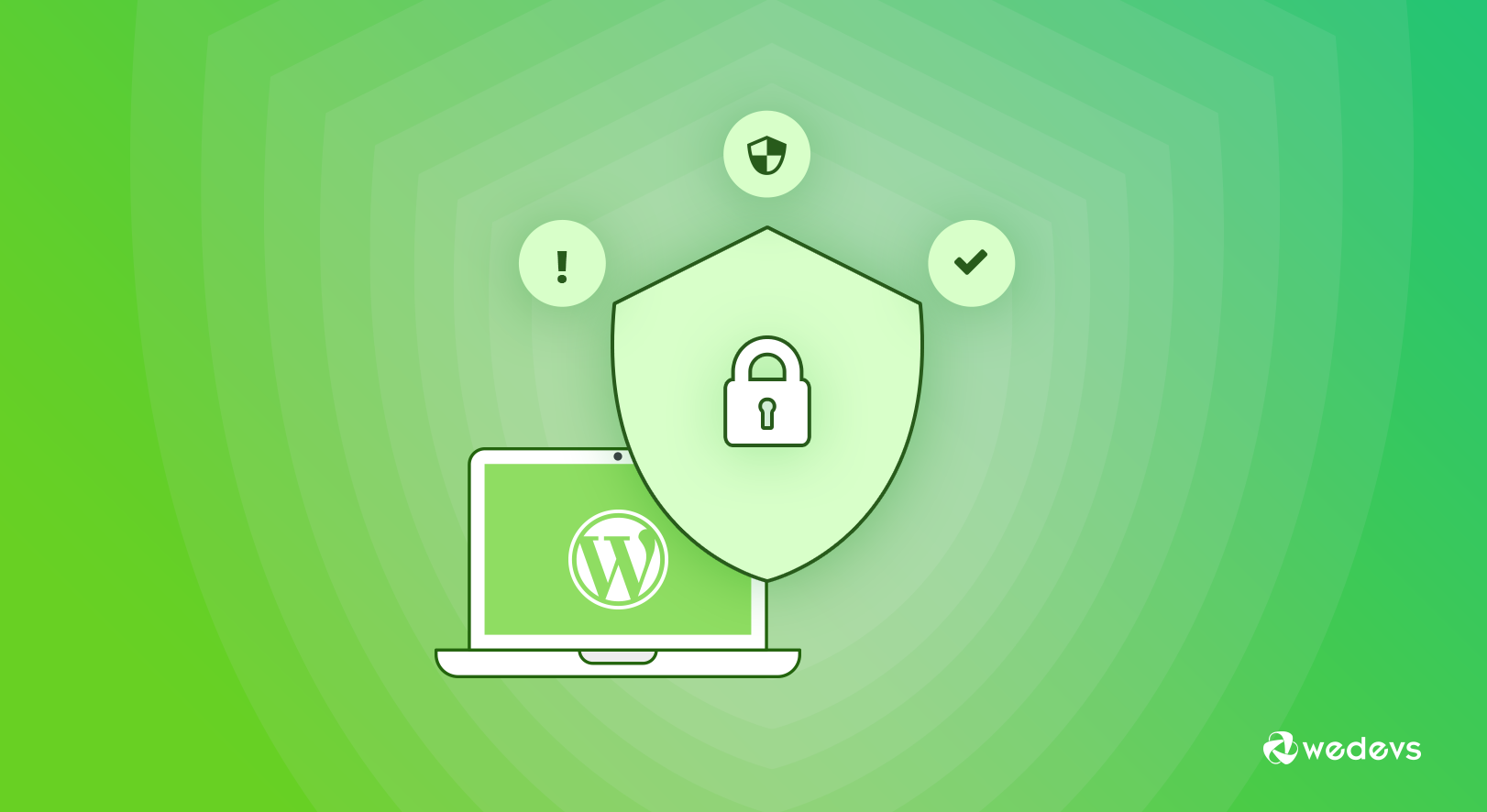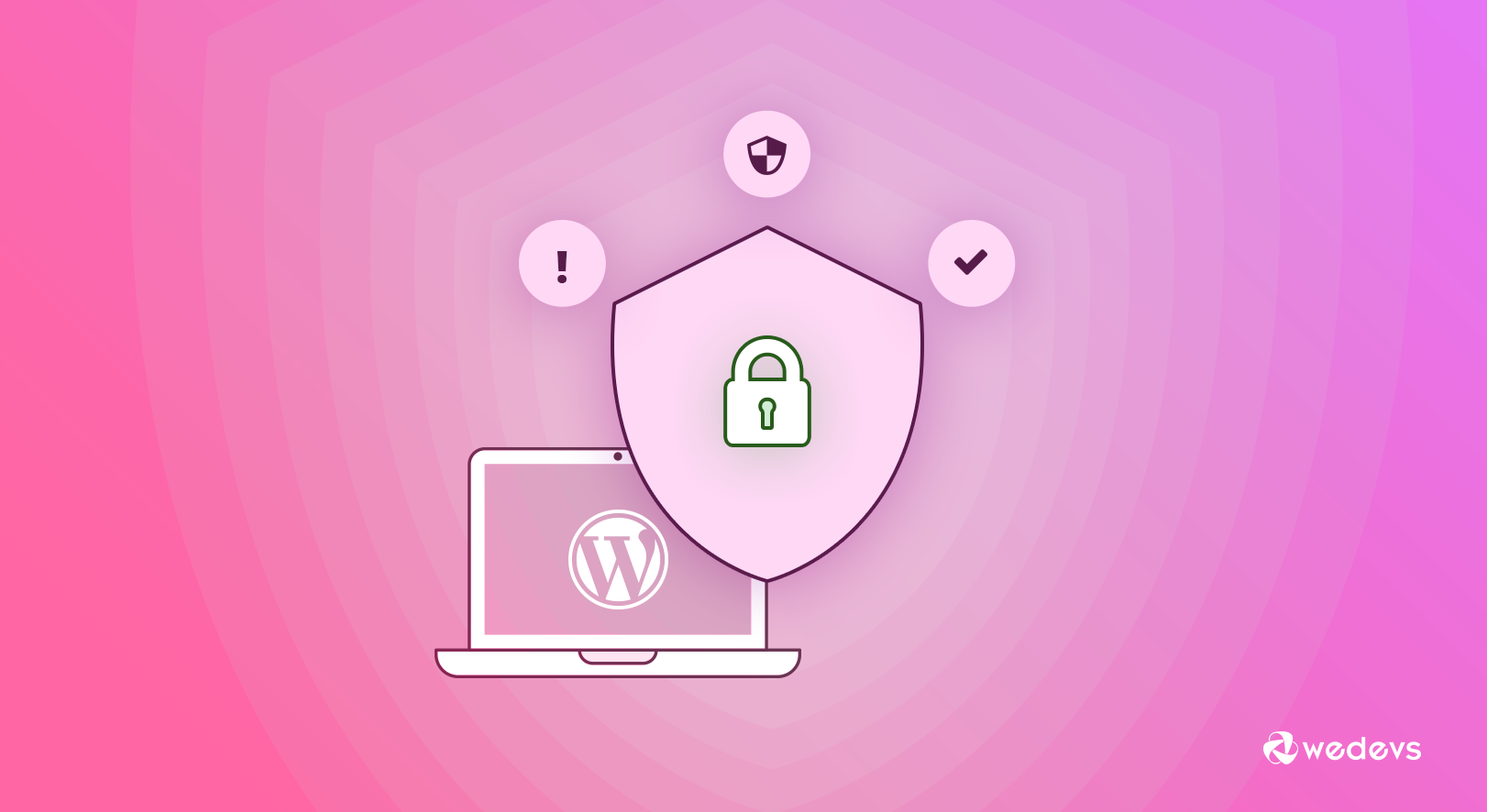
How WordPress Firewall & Security Plugins Can Protect Your Website
In today's era, WordPress is madly popular. According to a recent report, WordPress currently has a CMS market share of 63.0%.
WordPress can be a one-stop solution for any type of website. This is why WordPress is so attractive to all its users. However, with such features comes a fear of security attacks on your site.
You always know that precaution is better than cure. It is safer to proactively secure your WordPress site than to wait for an attack. The security breach is more serious and expensive too and one should not ignore it.
Therefore, you should develop a well-rounded security strategy that takes all the thoughts of the hacker into account. We always take this automated security strategies and tools for granted without even giving a second thought about the cyber protection it provide to our website.
Let us dig into the WordPress firewall in more detail. We need to pay attention to what firewall is and how does it works for your website?
What Is A WordPress Firewall?
A firewall acts as a barrier between your website and potential threats. It filters out malicious traffic and allows only legitimate requests to pass through. If a threat is detected, the firewall blocks the connection and prevents unauthorized access to your website.
There are two main types of firewalls:
- Network-level firewalls and
- Application-level firewalls.
Network-level firewalls filter traffic based on IP addresses and ports, while application-level firewalls examine the data packets at the application layer.
How Does WordPress Firewall Work?

In the present world, a firewall is one that is built for the purpose of providing you with a valuable network security measure. Something that has some set of rules on incoming and outgoing traffic in order to protect networks, servers, websites, etc.
These rules are meant to place a wall between a trusted server where your WordPress website is hosted on and an untrusted source, which is the internet. It allows only the entry of trusted data. Many methods are implemented to make this happen, which are as follows:
- Filtration: Packets of data coming in contact with your firewall are analyzed against a set of filters.
- Inspection: To avoid analyzing all the data coming to your website, only the key elements are compared and identified with the trusted information in a database. If the data matches, then it is allowed to pass through.
- Proxy: An intermediate path is established between your website and the internet. This path acts as a proxy or middleman, which allows good traffic to pass while terminating the rest before it enters your website. While WordPress firewalls come with their own proxy systems, integrating them with some of the best proxy providers can offer enhanced performance and global routing benefits.
A Helpful Resource: The Ultimate Security Guide for Your WordPress Site.
Why Do You Need a Firewall for Your Website?
There is no website currently which is perfectly secured. But when it comes to its security portion, there is nothing better than the WordPress firewall. You probably want to secure and strengthen your website against the inevitable cyber-attack by taking a different security step. One of those steps is Firewall.
Today, many WordPress plugins and features are available, offering an extensive array of tools that cover the full security options that are available to WordPress users. This reduces the work of managing each plugin or service for many good reasons and allows it to operate very smoothly.
Even with the available tools, you are using only the few security measures which are provided. This leaves a doubt on the personal reasons based on the specific needs for your website. But there are better reasons you want to make a firewall.
10 Best WordPress Firewall Plugins
As you can see, there are plenty of reasons why you can use a firewall to protect your WordPress website. In terms of tools, you can consider some of the best WordPress firewall plugins to start with.
Let's explore the top 10 firewall solutions for 2026. These solutions have been carefully selected based on their effectiveness, ease of use, and compatibility with the latest version of WordPress. Each solution offers unique features and benefits to suit different website security requirements.
- Shield Security
- Sucuri Security
- Wordfence Security
- MalCare
- Cloudflare
- Patchstack
- NinjaFirewall
- All In One WP Security & Firewall
- Astra Web Security
- SecuPress
1. Shield Security
Shield Security is a user-friendly WordPress security plugin that offers effective protection against various cyber threats. With its simplistic interface and powerful features, Shield Security helps website owners safeguard their sites from malware, brute force attacks, and unauthorized access attempts.
Best for: Early detection and blocking of malicious bots.
Key Features:
- Anti-bot detection engine.
- Malware and vulnerability scanner.
- Login attempt limits (brute force protection).
- reCAPTCHA integration.
- Web application firewall (WAF).
2. Sucuri Security
Sucuri Security is a comprehensive security plugin offering a robust firewall feature. It provides website monitoring, malware scanning, and DDoS protection, in addition to its firewall capabilities. With its cloud-based firewall, Sucuri effectively blocks malicious traffic before it reaches your site.
Best for: Comprehensive protection against various threats.
Key Features:
- Malware scanning and removal.
- Firewall protection.
- Brute-force attack prevention (premium).
- Global IP blocking (premium).
- Real-time firewall rule updates (premium).
- Whitelisting options.
- Geoblocking.
- Vulnerability scanning.
- Traffic logging.
- Custom firewall block page.
3. Wordfence Security
Wordfence Security is a popular choice among WordPress users, known for its powerful firewall and malware scanning functionalities. It continuously monitors website traffic, identifying and blocking suspicious IPs and malicious requests in real-time.
Best for: Popular and feature-rich security solution.
Key Features:
- Web application firewall.
- Malware scanner.
- Two-factor authentication (2FA).
- Leaked password protection.
- Manual blocking and country blocking.
- Automated file repair.
- Login security features.
4. MalCare
MalCare offers a user-friendly firewall solution designed to protect WordPress sites from various threats, including brute force attacks and SQL injections. Its firewall operates at the server level, minimizing the impact on site performance while ensuring maximum security.
Best for: Advanced malware detection with AI.
Key Features:
- AI-powered malware scanning.
- Firewall protection.
- Brute-force attack prevention.
- Automatic website backups (premium).
- Easy website restoration (premium).
5. Cloudflare
Cloudflare is a widely-used content delivery network (CDN) that also offers firewall protection for WordPress sites. With its advanced security features, including WAF (Web Application Firewall) capabilities, Cloudflare helps mitigate DDoS attacks and other malicious activities.
Best for: Content Delivery Network (CDN) with security features.
Key Features:
- Content Delivery Network (improves website performance).
- DDoS mitigation (protects against large-scale attacks).
- Web Application Firewall (WAF – basic).
- SSL/TLS encryption (premium).
6. Patchstack
Patchstack provides a comprehensive security platform for WordPress websites, incorporating a powerful firewall, malware scanning, and vulnerability patching. Its firewall rules are regularly updated to address emerging threats, ensuring proactive protection for your site.
Best for: Advanced WAF and virtual patching.
Key Features:
- Customizable web application firewall (WAF).
- Virtual patching for automatic plugin and theme vulnerability fixes.
- Two-factor authentication (2FA).
- Security monitoring.
- Uptime monitoring.
7. NinjaFirewall
NinjaFirewall is a robust web application firewall designed specifically for WordPress. It operates as a standalone firewall, analyzing and filtering incoming traffic before it reaches the WordPress core, thereby minimizing the risk of exploitation.
Best for: Free WAF with advanced features in the premium version.
Key Features:
- Web application firewall (WAF).
- Detects WAF evasion techniques.
- Protects against large-scale attacks.
- File monitoring for integrity checks.
- Real-time traffic monitoring (premium).
- Automatic rule updates (premium).
8. All In One WP Security & Firewall
As the name suggests, All In One WP Security & Firewall is a comprehensive security plugin for WordPress. In addition to its firewall module, it offers numerous security features, such as login lockdown, file integrity monitoring, and database security.
Best for: User-friendly security with anti-spam and content protection.
Key Features:
- User-friendly interface.
- Spam prevention.
- Login security measures.
- File change detection.
- Blacklist monitoring.
- (Some features may be limited in the free version).
9. Astra Security
Astra Security provides a proactive approach to website security, offering a firewall solution that can be easily integrated with WordPress sites. It leverages machine learning algorithms to identify and block malicious traffic in real-time, minimizing the risk of data breaches.
Key Features:
- Malware scanning.
- Firewall protection.
- Login security measures.
- Backup and restoration options.
10. SecuPress
SecuPress is a user-friendly security plugin that includes a firewall module to protect WordPress sites from hackers and malware. Its intuitive interface allows users to configure security settings effortlessly, making it an ideal choice for beginners and experienced users alike.
Best for: User-friendly security solution with various modules.
Key Features:
- User-friendly interface with modular design.
- Malware scanning.
- Firewall protection.
- Login security measures.
- Backup and restoration options.
- User activity monitoring.
This is the list of today's top 10 WordPress firewall plugins. You can check multiple options one by one on your website. And then decide which one is the perfect fit for your needs.
Strengthen Your Site's Security with WordPress Firewall
Using a WordPress firewall is one of the many ways to secure your website. But there is no complete assurance that it does protect the website perfectly without errors. Moreover, you cannot take WordPress security lightly. Therefore, firewalls are a great way to add an extra layer of strength to your web security.
Fortunately, there are a plethora of tools and services to help the average website user enact an effective firewall in terms of broad security and actions.